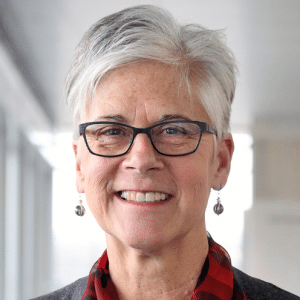By Sara M. Johnson, FACHE, Director, Executive Education, IUPUI-School of Public and Environmental Affairs
Public service is important and over the last 30 years has evolved beyond just describing government careers. Many people are motivated to volunteer on the “front lines” and even donate money to worthy and favorite causes, especially at year end.
And, as critical to the sector as these activities are, serving as a nonprofit board member can be even more important. A board member’s role includes fiduciary responsibility, potential for conflicts of interest, oversight of an executive director and a responsibility to those the organization serves.
In her book, “Five Life Stages of Nonprofit Organizations,” author Judy Sharken Simon defines governance as, “… the legal authority responsible for guarding the organization’s adherence to its mission and ensuring its long-term stability and operations in order to do so.” As organizations move through the five stages, Sharken Simon also describes the phase of governance that characteristically accompanies these five developmental stages. She accurately applies an existing concept of organizational development — the organizational lifecycle to nonprofits.
Interestingly, though, Sharken Simon doesn’t suggest board development until the board is governing in the Third Stage. Prior stages describe the accompanying governance stages as “locating people to serve on the board” and “Homogenous, passionate.”
Is it really a good idea to begin with “locating people to serve on the board” and, then, wait until the organization is more mature to conduct board development? What if you began with locating “qualified” people to serve on the board? Maybe this is inferred in Sharken Simon’s writing, but without this consideration, many boards do just that: “locate people to serve.” Often, accepting the role as a favor, these individuals are not prepared for the responsibilities of nonprofit governance. This approach is not consistent with effective management or governance practices.
Several years ago, Indiana University Executive Education faculty, experts in nonprofit management and governance, developed the Certificate in Nonprofit Executive Leadership (CNEL) program. This program has successfully prepared nonprofit leaders for nearly 10 years.
Information can be found here: https://spea.iupui.edu/executive-education/leadership-programs/nonprofit-executive-leadership-certificate.html
This same team of expert faculty has now turned their attention to address the need for qualified board members.
The Certificate in Effective Nonprofit Governance (CENG) is designed to prepare individuals to effectively serve on a nonprofit board…BEFORE (or soon after) they are on the board. This IU certificate program not only provides busy professionals both online and face-to-face education and training, it also creates a much-needed pipeline of qualified board members for Indiana nonprofits.
“Taking this course was the right thing to do. I feel better prepared to serve on the board. The course is well organized and I highly recommend the course to anyone who is considering serving on the governing body of a nonprofit.” Donna Haggard, Hendricks Regional Health
SPEA will offer its third noncredit Certificate in Effective Nonprofit Governance beginning in February. The program prepares board members to be proactive in their critical governance efforts. Please check out the Certificate in Effective Nonprofit Governance here.
Consider sponsoring someone to earn this certificate and better support your organization or, if you are an individual wanting to enhance your own board effectiveness, contact our Executive Education team for additional information at spea.iupui.edu/executive-education.
Be proactive – develop your new board members now – it’s a critical role that warrants preparation.


